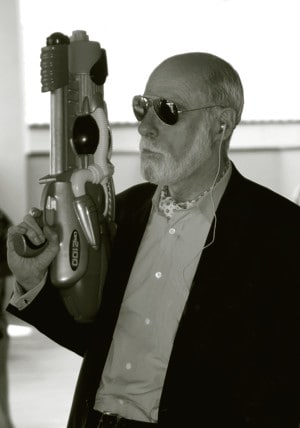Scott Bradner is an Internet Pioneer. His resume, Wikipedia page, and Network World column speak for themselves. Mr. Bradner has been involved in Internet technology and governance for over two decades, including significant and ongoing work in the IETF, at ARIN, and with ISOC, all in addition to his day job at Harvard University. I was fortunate enough to get to ask Scott a few questions recently and I’d like to share that conversation here with you now:
dp: How would you describe the Internet to someone who has never experienced it?
SB: (and who, over the age of 3 has not experienced it these days? :-) ) the Internet is a chameleon – it is very different things to different people – an interactive encyclopedia of medical information for one user, a faster and cheaper post office for another, a way to commune with people of your own political bent for another and a way to influence the world around you for another, a cyber security, porn threat, in general a threat to society to a politician. And an interactive gaming system for yet another.
dp: What was your first experience with a computer?
SB: first real experience was with the PDP-1 prototype in about 1965 at Information International Inc. learning how to code film strip readers
dp: What was your first experience with the Internet?
SB: I got an account on Harv-10 in about 1972 (not actually the Internet which I’d say came in 1983 with TCP/IP but at least the ARPANET) – have had basically the same email address since 1972
dp: What was the first involvement you had with Internet technology development?
SB: uucp path service in the mid 1980s – see RFC 915
started working in the IETF in 1989 (started attending IETF in 1990)
dp: What was the first involvement you had with Internet policy development?
SB: as IETF/ISOC liaison to the ITU-T in the mid 1990s (along with the IPng effort starting in 1993)
dp: What has been, in your opinion, your most significant contribution to the Internet so far?
SB: maybe co-managing the IPng process, but also could have been being AD in the TSV area pushing diffserv, enum and a bunch of other technologies, or my various writings (e.g. Network World) – there are a few other candidates as well including the CDA (see column mentioned below)
dp: What is your biggest regret (so far), wrt your involvement with the development of the Internet?
SB: did not do variable length addresses in IPv6 & punted on dealing with routing during the IPng process
dp: How do you use the Internet today, any favorite sites, useful applications, etc.?
SB: email, search, news
dp: What do you see as the next big thing for the Internet?
SB: it will further disappear – it will continue to become the background glue that everything (and I mean almost literally everything) depends on but fewer people will know they are using the Internet when they are
dp: Where do you see the Internet taking us in 10 years?
SB: social disruption, business disruption and the pushback on both
dp: What are you working on today?
SB: literally today, a recommendation for an ex student and answering your questions
these days, identity management
dp: Can you tell me more about your work in identity management?
SB: Harvard is in the middle of figuring out how to move forward with a university-wide identity management architecture as well has figuring out how to federate with non-Harvard entities (e.g. with InCommon). I’m part of the teams working on these issues.
dp: What should folks just getting into Internet technology be focusing on?
SB: too many possibilities (see http://www.sobco.com/e.132/
dp: What should folks just getting into Internet policy be focusing on?
SB: between now & dec – the WCIT
after then the RIAA (shorthand for the copyright industry) and the
people that would protect society from the free flow of discussion
(see http://www.sobco.com/nww/1996/
dp: Is there something out there that will dwarf the Internet, specifically with regard to its impact on society?
SB: other than finding alien lifeforms it is hard to see one – the Internet is this Millennium’s printing press “a parent revolution” (Victor Hugo)
dp: Thanks Scott!



Good notes
Nicely done. Scott’s awesome.